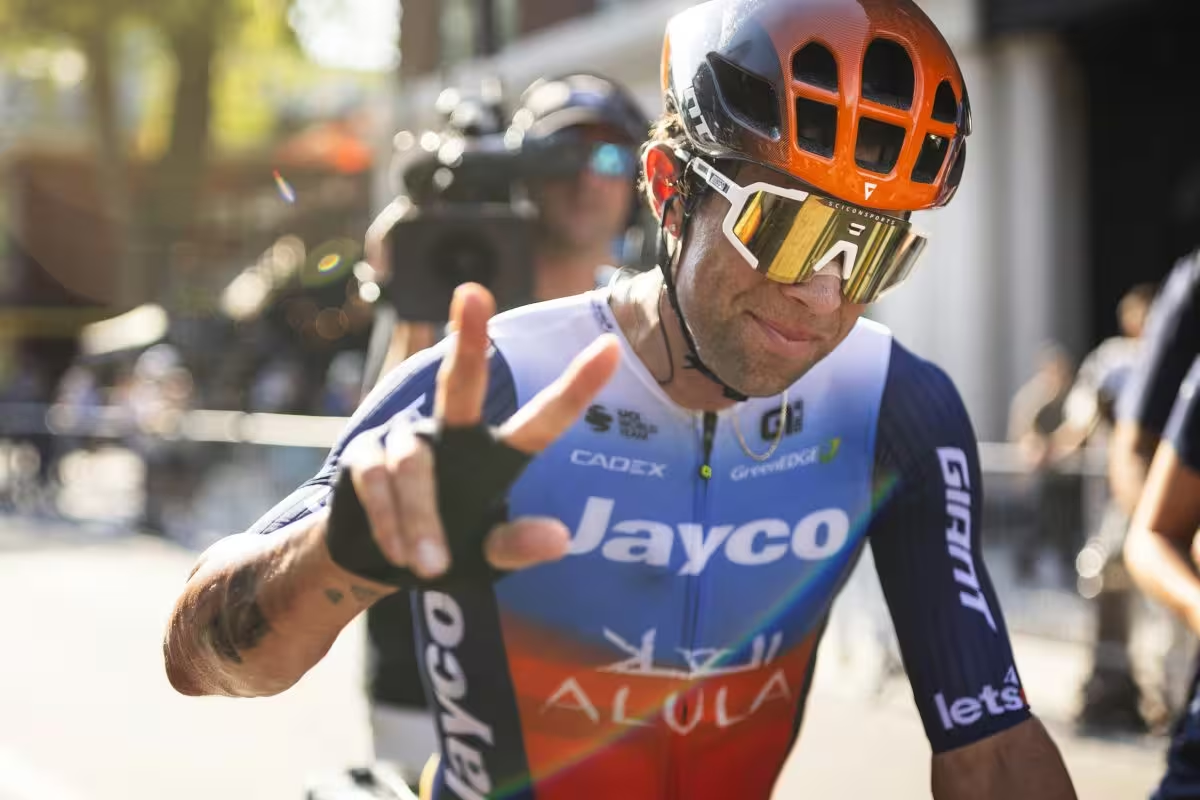Two days before Michael Matthews won his third Grand Prix Cycliste de Québec, he was in his hotel room in Quebec City, virtually attending his grandmother’s funeral. She had passed away almost a week and a half before the Australian rider found himself on the podium pointing to the sky in her honour.
“My grandma had a stroke a couple of hours before she passed away,” Matthews said at his post-race press conference. “My daughter, my wife and I had a FaceTime call with her in the hospital. She was on morphine to keep her alive for as long as possible and to see if she could work past this stroke. Unfortunately, it was her second one in quite a short period of time.
“She had her eyes closed for a lot of our phone call. But when she actually opened her eyes and smiled a little bit—that is something I’ll cherish for the rest of my life, honestly.”
A few hours later, Matthews got a call from his mother. His grandmother had died. One of the hardest parts for the rider was not being able to be with his mom at that moment.
“Later, watching the funeral online, seeing all my family together and me being here on the other side of the world by myself and not with them, that gave me extra energy for today, for sure,” Matthew said. “I think if I couldn’t win today, what’s the point of being here?”
Matthews’s season hadn’t gone well. It started strong with a second-place finish in Milan-San Remo. But then there was his relegation at the Tour of Flanders, from third to 11th. He felt nothing went to plan at the Tour de Suisse, the Tour de France and the Olympics road race.
“I just knuckled down after the Olympics as I knew there were some good opportunities here in Quebec and Montreal to get back to those winning ways again. I mean, I’ve won here twice now. I know what it takes,” he said.
Before the race in Quebec City, he re-watched his past victories. The research seemed to help. When last year’s winner Arnaud de Lie, Tadej Pogačar and a few others attacked in the closing kilometres of the race, Matthews, who didn’t have any Jayco AlUla teammates left, had to gamble on everything coming back together for the sprint, as it does so often. “I mean, it never really pays off—attacking from the steep climb to the finish,” he said.
With Pogačar on the start line of the race that favours fast finishers, many in the peloton suspected that the Slovenian’s team, UAE Emirates, would keep the pace hard,…
Click Here to Read the Full Original Article at Canadian Cycling Magazine…

